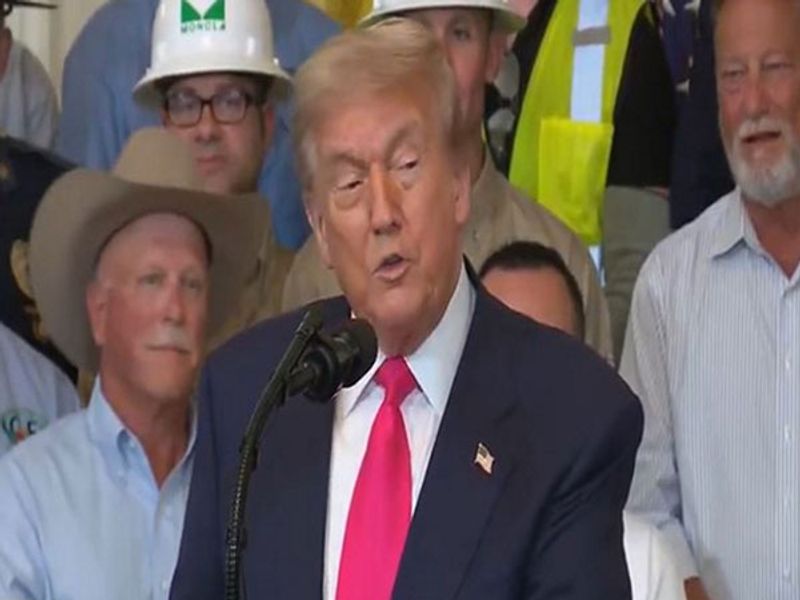
In a significant move towards easing trade tensions, the United States has reached an agreement with China to expedite the export of rare earth minerals. This development was confirmed by a White House official on Thursday, as both nations strive to resolve a protracted trade war that has impacted global supply chains.
The announcement follows US President Donald Trump’s remarks at the ‘Big Beautiful Event’ at the White House, where he hinted at a potential “very big” trade deal with India. “We are having some great deals. We have one coming up, maybe with India. Very big one, where we are going to open up India,” Trump stated, underscoring the administration’s focus on international trade agreements.
Progress in US-China Trade Relations
The agreement with China is part of an ongoing effort to dismantle trade barriers between the world’s two largest economies. During trade discussions in Geneva last May, China committed to removing non-tariff countermeasures imposed against the US since April 2. However, the specifics of how these measures would be reversed remained unclear.
China had previously suspended exports of critical minerals and magnets, disrupting supply chains crucial to industries such as automotive, aerospace, and semiconductors. The recent understanding aims to implement a framework to expedite shipments of these rare earths to the US, according to a White House official.
“The administration and China agreed to an additional understanding for a framework to implement the Geneva agreement,” the official said.
Implications for Global Supply Chains
The US-China agreement marks a potential turning point in the trade dispute, which has seen both countries impose tariffs and other trade barriers. US Commerce Secretary Howard Lutnick highlighted the importance of this deal, stating, “They’re going to deliver rare earths to us,” which would lead to the US lifting its countermeasures.
China’s embassy in Washington has not yet commented on the agreement. However, industry sources indicate that China is taking its dual-use restrictions on rare earths seriously, vetting buyers to prevent materials from being diverted to US military uses. This scrutiny has slowed the licensing process, though temporary export licenses have been granted to suppliers for major US automakers.
Future Trade Prospects
While the agreement with China signals progress, it also highlights the complexity of reaching a comprehensive trade deal. The Trump administration’s export controls on semiconductor design software and other goods remain in place, reflecting ongoing tensions.
Meanwhile, President Trump has expressed optimism about a forthcoming trade pact with India. An Indian delegation, led by chief negotiator Rajesh Agarwal, is currently in Washington for trade discussions, aiming to finalize a deal before July 9. “Everybody wants to make a deal and have a part of it,” Trump remarked, emphasizing the administration’s selective approach to trade negotiations.
“We’re not going to make deals with everybody. Some we are just going to send them a letter, say thank you very much. You are to pay 25, 35, 45 per cent,” Trump asserted.
Conclusion and Outlook
The recent US-China agreement on rare earth exports represents a step forward in addressing trade imbalances, yet the path to a definitive trade resolution remains challenging. As negotiations continue, the global economic landscape will closely watch the outcomes of US trade talks with both China and India.
For industries reliant on rare earth minerals, the agreement offers a glimmer of stability amidst months of uncertainty. However, the long-term implications of these trade dynamics will depend on the ability of both nations to navigate complex geopolitical and economic interests.







